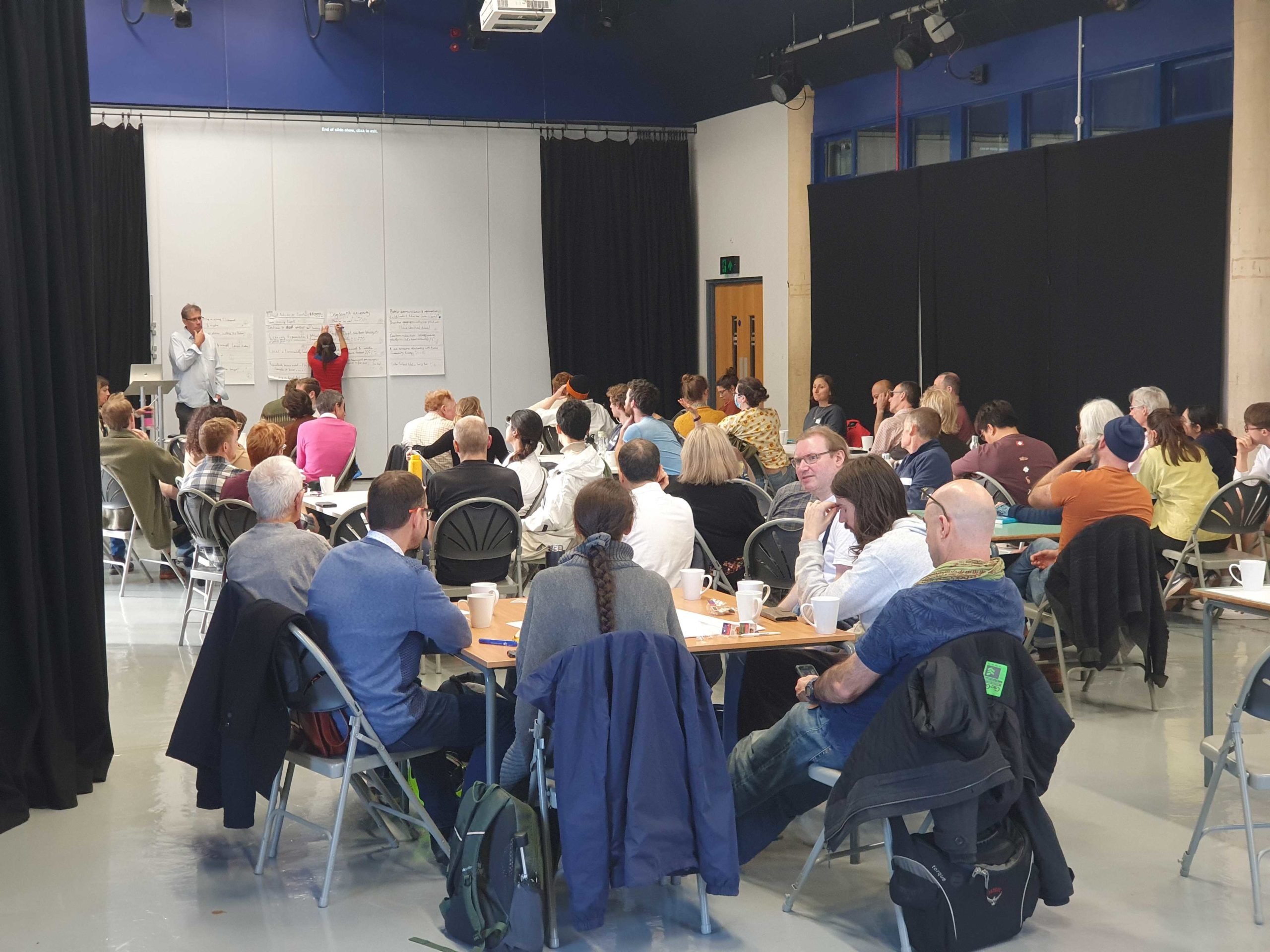By Marco Agolzer 30 October 2024
On 23 October, the GSI hosted the second in a series of community assemblies, encouraging participants to come together and respond to the question “How should we, as the university and community, reduce our carbon footprint?”.
The series, led by myself, a 3rd-year undergraduate Physics student and GSI Assistant Directors Raphaëlle Haywood, Ernesto Schwartz-Marin, and James Dyke, began with an inaugural assembly on 20 March. The aim of these assemblies is to find out precisely what matters to staff, students and others at the University, as well as members of the local community, without applying any biases or pressure. Through this series of assemblies, the GSI can facilitate an ongoing conversation that everyone in the University community can be a part of.
We were delighted to have over 55 people register to attend the assembly on 23 October, alongside more than 10 trained facilitators. Participants came from across the University and the local community, which included members of the University’s Sustainability Team. Unlike the previous assembly, participants and facilitators were divided into small groups 5-7 at the start.
After a short introductory speech by Assistant Director Raphaëlle Haywood, GSI Director Peter Cox summarised the University’s current status on net zero and highlighted concerns with carbon offsetting. Head of Sustainability programmes Nicola Corrigan then explained the concept of ‘insetting’, an alternative which involves reducing an organisation’s emissions within their supply chain or geographical area, and introduced some possible next steps that the University could take to decarbonise. This was done in order to ensure all participants had the necessary context to best engage with the question and provide them with possible starting points for the dialogue.
Once I had laid out the principles that would drive the assembly process, the group discussions began. The breakout groups were a great success once again. Participants were able to shape and engage the conversation, sharing their views equally on what measures they felt the University and local community should take to reduce their carbon footprint, and how they could boost each other’s efforts. The facilitators helped to guide the conversations to reach constructive and specific outcomes and ideas. Each group’s top three actions were later shared to the full group.
Whilst continuing discussions over tea, coffee, and snacks, all those present at the assembly had the opportunity to vote on the three actions they would most like to see the University take on.
A wide range of ideas emerged from the assembly, and the three most popular recommendations were:
- Become a “degrowth” University by re-evaluating our business model.
- Switch to meat-free, plant-based food and overhaul the food procurement and waste system.
- Implement carbon budgets for Departments, particularly to limit staff flights.
Nicola Corrigan and the Sustainability Team are grateful for everyone’s inputs, that will help shape the University’s work to become more sustainable.
Thank you to everyone who shared feedback on how to improve the assembly process! There were some great ideas to anonymise voting and make it easier to group and consolidate similar ideas together. We’ll also prepare a pre-assembly info pack to be circulated ahead of our next assembly — please get in touch if you’d like to help!
The next assembly will be held on 5 February 2025 on the topic of “Addressing education through the lens of the climate crisis”. We aim for each assembly to build upon the work of previous ones: this topic was one of the top actions identified in the inaugural 20 March assembly. A third assembly will be held later around May 2025.
If you are interested in attending the GSI Community Assemblies you can sign up to receive email updates on all of our upcoming events by emailing infoGSI@exeter.ac.uk, and check out the News and Events page on the GSI website.
Please email me (ma1109@exeter.ac.uk) if you’d like to help organise and promote our assembly, or become a facilitator!

